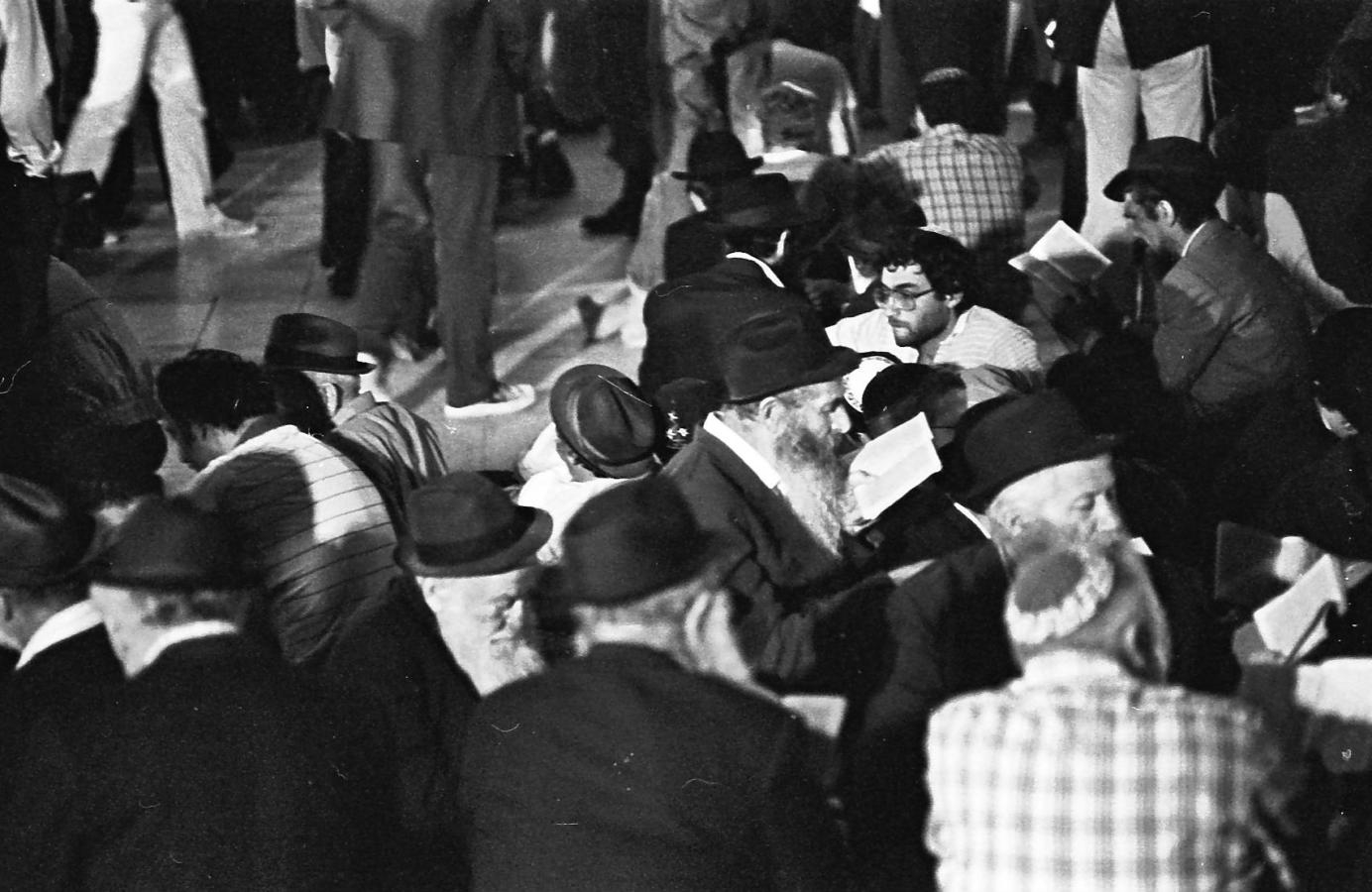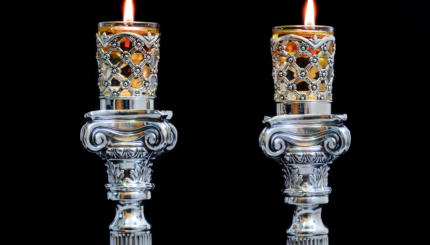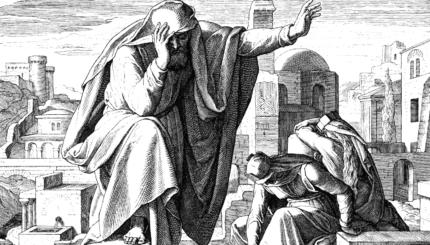Tisha B’Av, observed during the intense, blazing heat of late summer, commemorates the destruction of the Temple in Jerusalem in the year 70 CE. Though it happened nearly 2,000 years ago, this tragedy transformed Jews and Judaism forever. Not only did the Roman cruelly murder thousands of Jews and drive many more into exile, but by destroying Judaism’s most sacred shrine, they brought an immediate end to sacrifice — Jews’ primary means of worship in the first century.
In the wake of the Temple’s destruction, Judaism transformed from a religion of sacrifice to a religion of prayer and Torah study. Indeed, the rabbis of the Talmud, who lived centuries after the destruction, declared explicitly that without a Temple, Torah study and prayer took the place of sacrifice in Jewish worship. Nearly 2,000 years later, they remain utterly central to Judaism.
So some may be surprised to learn that the Talmud (Taanit 30a) prohibits Torah study on Tisha B’Av:
The Sages taught: All mitzvahs practiced by a mourner are likewise practiced on Tisha B’Av: It is prohibited to engage in eating, and in drinking, and in smearing oil on one’s body, and in wearing shoes, and in conjugal relations. It is prohibited to read from the Torah, from the Prophets, and from the Writings, or to study from the Mishnah, from the Gemara, and from midrash, and from collections of halakhah, and from collections of aggadah.
Alongside fasting and engaging in acts of self-indulgence and comfort (moisturization and footwear were counted in this category in the ancient world), Jews refrained from studying sacred literature. But why?

Help us keep Jewish knowledge accessible to millions of people around the world.
Your donation to My Jewish Learning fuels endless journeys of Jewish discovery. With your help, My Jewish Learning can continue to provide nonstop opportunities for learning, connection and growth.
The answer is that Torah study brings pleasure. As Psalms 19:9 has it:
The laws of God are just, gladdening the heart,
the commandments of God are lucid, making the eyes light up.
But wait! The Book of Lamentations, one of the five megillot, is read in synagogue on Tisha B’Av. Doesn’t this violate the prohibition against Torah study?
According to the Talmud (same page, Taanit 30a) a few books are an exception to the “no Torah study” rule. Lamentations, a series of poetic laments for the destruction of Jerusalem, which is obviously fitting for the occasion, is on the list. Also included in the exception: Job, a book about the suffering of the righteous, and certain passages of Jeremiah that lament the destruction of the first Temple and upbraid Israel for their faithlessness.
Over the centuries, Jews have often understood this passage in the Talmud to mean not that Torah study is forbidden on Tisha B’Av, but that it must be restricted to passages that are mournful. Indeed, in addition to reading Lamentations, Jewish recite regular daily prayers including passages from the Torah — for instance, the Shema (even though this passage is not mournful). In synagogue, they also read Torah (the reading for Tisha B’Av is Deuteronomy 4:25–40, which describes the destruction of the Land of Israel) and haftarah (Jeremiah 8:13–9:23).



